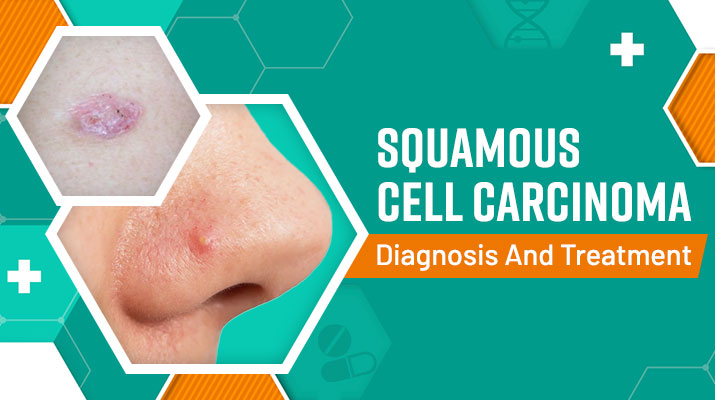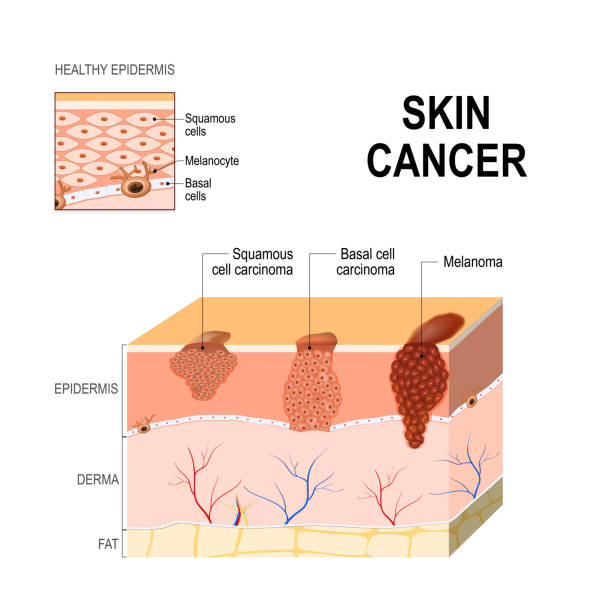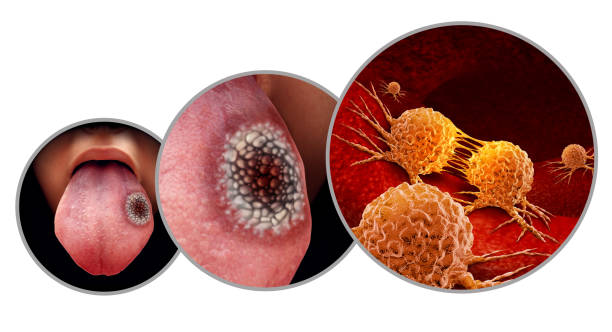Carcinoma Understanding the Basics
 |
| Carcinoma-Causes, Symptoms, and Treatment Options, Healthnews // Winston |
Common Causes, Symptoms, and Risk Factors of Carcinoma
What is Carcinoma?
Carcinoma refers to a type of cancer that starts in cells that make up the skin or the lining of organs. Carcinomas are one of the most common types of cancer and can occur in many different parts of the body, including the lungs, liver, pancreas, and skin.
There are several subtypes of carcinoma, such as squamous cell carcinoma, adenocarcinoma, and basal cell carcinoma, which are named based on the type of cell that the cancer begins in.
Carcinoma is a serious and potentially life-threatening condition that requires prompt medical attention and treatment.
According research
Carcinoma is a type of cancer that arises from epithelial cells, which are the cells that form the lining of internal organs and the skin. According to research, carcinoma is the most common type of cancer worldwide, accounting for approximately 90% of all cases of cancer.
There are many different subtypes of carcinoma, including adenocarcinoma, squamous cell carcinoma, and basal cell carcinoma. Each subtype has unique characteristics and may require different treatment approaches.
Research has shown that certain risk factors, such as exposure to tobacco smoke, UV radiation, and certain chemicals, can increase the likelihood of developing carcinoma. Additionally, genetic factors may play a role in the development of certain subtypes of carcinoma.
Early detection and treatment are critical for improving outcomes in carcinoma. Treatment options may include surgery, radiation therapy, chemotherapy, immunotherapy, and targeted therapy, among others. The choice of treatment depends on the subtype of carcinoma, as well as the stage and location of the cancer.
 |
| What is Carcinoma- Causes, Symptoms, and Treatment Options, Healthnews // News Medical |
The causes
Carcinoma is caused by changes (mutations) in the DNA of cells that make up the body's tissues. These changes can occur spontaneously or be caused by environmental factors or inherited genetic mutations.
Some common causes and risk factors for carcinoma include:
- Age: The risk of developing carcinoma increases with age, as the body's cells accumulate more DNA damage over time.
- Exposure to carcinogens: Certain environmental factors, such as tobacco smoke, air pollution, ultraviolet radiation, and exposure to certain chemicals, can increase the risk of developing carcinoma.
- Inherited genetic mutations: In some cases, inherited mutations in specific genes can increase the risk of developing certain types of carcinoma, such as breast, ovarian, or colon cancer.
- Immune system disorders: People with certain immune system disorders, such as HIV/AIDS or those who have received an organ transplant, have a higher risk of developing certain types of carcinoma.
- Hormonal factors: Certain hormonal imbalances, such as those associated with menopause or long-term use of hormonal contraceptives, may increase the risk of developing certain types of carcinoma.
In many cases, the exact cause of carcinoma is unknown, and it may be the result of a combination of genetic and environmental factors.R E A D :
The symptoms
The symptoms of carcinoma can vary depending on the type of cancer and its location in the body. In some cases, early-stage carcinoma may not cause any symptoms, which is why regular screening is important for early detection. However, some common symptoms of carcinoma may include:
- Unexplained weight loss
- Fatigue or weakness
- Skin changes, such as yellowing or darkening of the skin or changes to the appearance of moles or other skin lesions
- Persistent cough or hoarseness
- Changes in bowel or bladder habits, such as blood in the stool or urine
- Difficulty swallowing or persistent indigestion
- A lump or thickening in the breast or other parts of the body
- Persistent pain in a specific area of the body
- Persistent fever or night sweats
It's important to note that these symptoms can also be caused by conditions other than carcinoma, but if you experience any of these symptoms or notice any changes in your body that are concerning, it's important to talk to your healthcare provider for an evaluation. Early detection and treatment of carcinoma can improve outcomes and increase the chances of a successful recovery.
 |
| Carcinoma-Causes, Symptoms, and Treatment Options, Healthnews /iStock |
Treatment method
The treatment options for carcinoma depend on the type of cancer, its stage, location, and other factors such as the person's overall health and preferences. Some common methods of treatment for carcinoma include:
- Surgery: Surgery is often used to remove the cancerous tumor and any surrounding tissue that may be affected. In some cases, nearby lymph nodes may also be removed.
- Radiation therapy: Radiation therapy uses high-energy radiation to kill cancer cells. It can be given externally, where a machine directs radiation at the cancer from outside the body, or internally, where radioactive material is placed near the cancer.
- Chemotherapy: Chemotherapy uses drugs to kill cancer cells. It can be given orally or intravenously, and may be used alone or in combination with other treatments.
- Immunotherapy: Immunotherapy works by using drugs or other substances to help the body's immune system fight cancer cells. It can be given intravenously or orally.
- Targeted therapy: Targeted therapy uses drugs or other substances to target specific genes or proteins that are involved in the growth and spread of cancer cells.
- Hormone therapy: Hormone therapy is used to treat certain types of carcinoma that are affected by hormones, such as breast or prostate cancer. It works by blocking the hormones or preventing them from binding to cancer cells.
The choice of treatment will depend on many factors, and often a combination of different treatments may be used to achieve the best outcome. It's important to talk to your healthcare provider about the different treatment options available and to discuss the potential benefits and risks of each option.
* Carcinoma is a type of cancer that arises from epithelial cells, which are the cells that form the lining of internal organs and the skin. It is the most common type of cancer worldwide and can be caused by a combination of genetic and environmental factors. Symptoms of carcinoma can vary depending on the type of cancer and its location in the body, and early detection and treatment are critical for improving outcomes. Treatment options for carcinoma include surgery, radiation therapy, chemotherapy, immunotherapy, targeted therapy, and hormone therapy, and the choice of treatment will depend on many factors, such as the type of cancer, its stage, location, and the person's overall health and preferences. It's important to talk to your healthcare provider about the different treatment options available and to discuss the potential benefits and risks of each option.




No comments:
Post a Comment